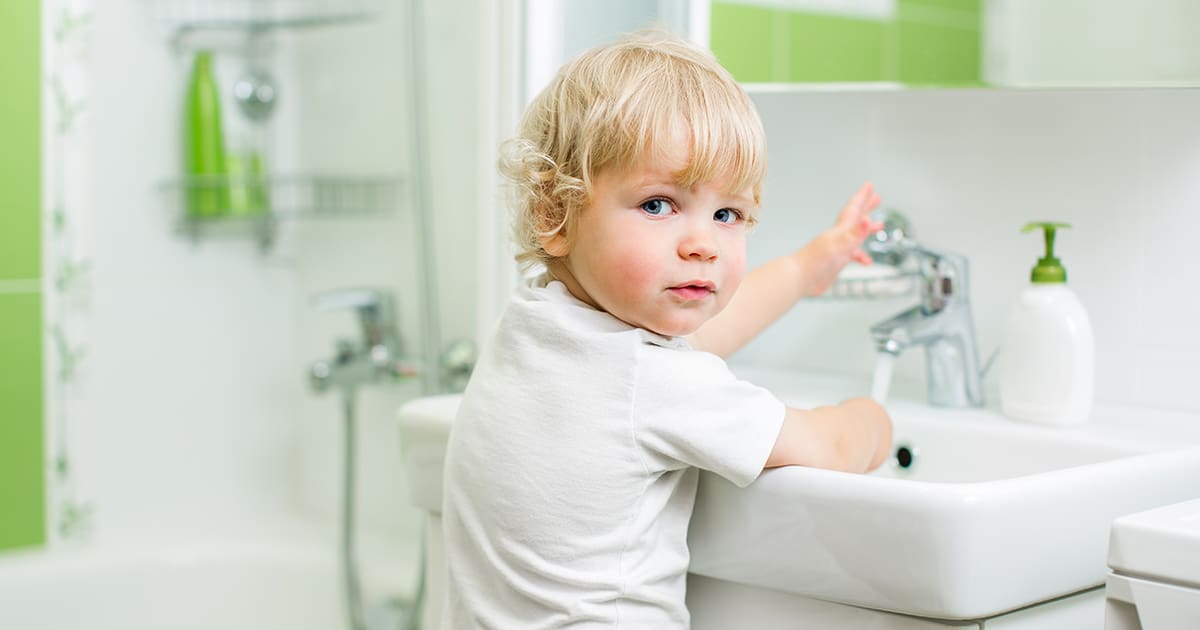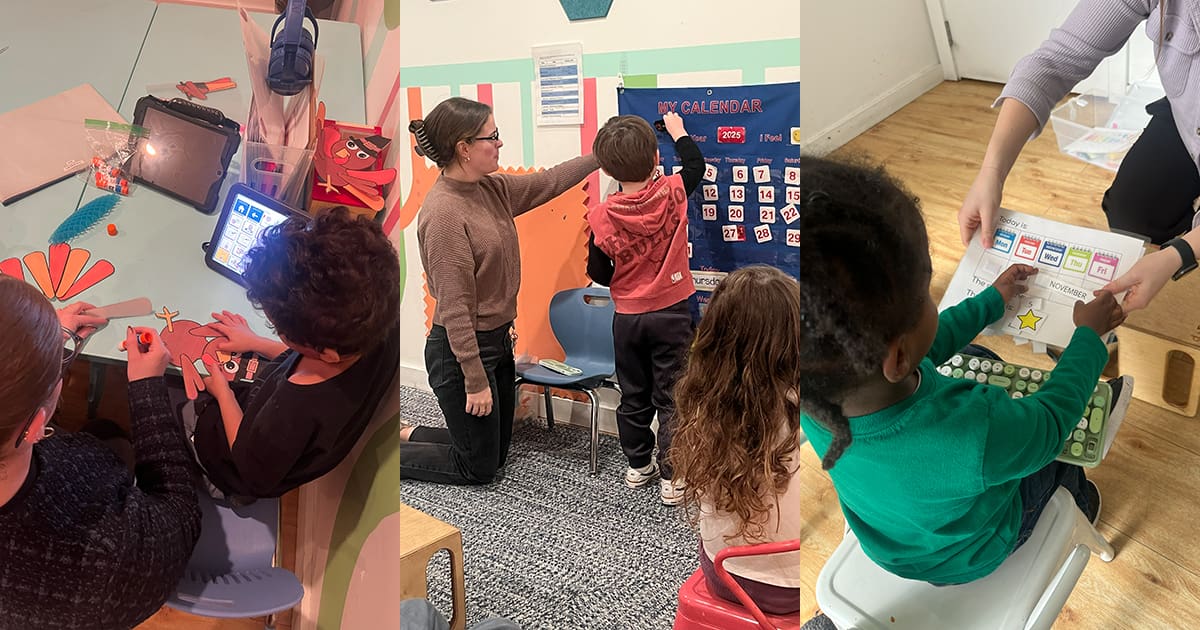Share this Post

Self care skills help children feel capable in everyday life. Getting dressed, brushing teeth, washing hands, mealtime routines, and toileting are more than tasks. These moments build confidence, comfort, and a sense of “I can do this.” Many autistic children experience sensory, motor, or communication differences that make these steps harder. With patient support and the right strategies, children learn at their own pace and celebrate real progress.
At CST Academy, with locations in Chicago and the surrounding suburbs, our team partners with families to nurture self care skills in a gentle, neuroaffirming way. We honor each child’s strengths, reduce stress around routines, and use playful, practical methods that work at home, at school, and in the community. Our goal is simple. Help your child feel safe, supported, and increasingly independent.
What Counts as Self Care Skills?
Self care, sometimes called adaptive skills, includes daily routines that support health and independence. These skills allow children to participate in their communities, connect with peers, and feel empowered to manage daily life tasks.
- Getting dressed and undressed
- Brushing teeth and hair
- Washing hands and bathing
- Eating and drinking with utensils and cups
- Using the restroom and toileting routines
When children master these abilities, they gain pride in their independence and strengthen their confidence in everyday situations. This progress also lightens the load for caregivers, creating smoother family routines and reducing stress at home.
Common Barriers and How We Respect Them
Every child learns differently, and autistic children may experience unique barriers when building self care skills. Recognizing these challenges and responding with compassion makes all the difference.
- Sensory differences
Certain fabrics, water temperature, toothpaste flavors, or bathroom sounds can feel intense. We adjust the environment, introduce choices, and build comfort in small steps. - Motor planning and coordination
Buttoning, zipping, or brushing requires sequencing and fine motor control. We practice with adapted tools and playful repetition to make movements automatic. - Communication and understanding
Long verbal directions can be hard to follow. We use visuals, modeling, and simple language so children know what comes next. - Preference for predictability
Transitions can be stressful. We create consistent routines with visual schedules and preview changes to reduce worry. - Emotional regulation
New tasks may trigger frustration. We teach co regulation strategies, provide breaks, and celebrate effort so learning feels safe.
By respecting these differences, we support children in ways that feel comfortable and build genuine confidence.
How CST Academy Teaches Self Care Skills
Our therapists collaborate across disciplines to provide personalized support. We use creative, evidence based strategies designed to meet children where they are, celebrate each milestone, and foster long term growth.
- Personalized assessment
We learn your child’s strengths, sensory preferences, and goals, then set clear, achievable milestones for progress. - Play based learning
We embed skills in games and pretend play. A dress up game becomes zipper practice. A bubble party becomes handwashing warm up. - Sensory smart supports
We offer quieter spaces, soft fabrics, alternate toothpaste, and gradual desensitization so the body feels calm and ready. - Task analysis and chaining
We break each routine into small steps and teach them in sequence. Children master one part at a time and feel successful. - Visuals and step by step guides
Picture schedules, first then cards, and mirror modeling help children see exactly what to do. - Parent coaching
We share simple scripts, visuals, and home practice plans. Families stay consistent so gains stick outside therapy. - Strength based reinforcement
We notice effort, offer choices, and use meaningful rewards that build intrinsic motivation.
This comprehensive approach helps children develop skills that last and ensures parents feel supported in every step of the journey.
Everyday Examples We Practice
Self care skills are woven into the daily experience at CST Academy. Here are some examples of what children practice in therapy and how those activities translate to home routines:
- Dressing: Practice with large buttons, zipper boards, elastic waists, and a “pick two outfits” choice to increase buy in.
- Toothbrushing: Soft bristle or silicone brushes, flavored options, timers, and mirror imitation with a short visual sequence.
- Handwashing: Song based timing, touchless soap, comfortable water temperature, and a five step visual near the sink.
- Feeding: Gradual exposure to textures, utensil grips, open cup practice, and positive language around trying and stopping.
- Toileting: Scheduled sits, clear visuals, clothing that is easy to manage, and calm routines for clean up and resets.
By making these activities fun and achievable, children gain both independence and confidence in skills that will serve them for life.
Parent Tips for Gentle Success at Home
Parents and caregivers are key partners in reinforcing self care skills. Small changes at home can make daily routines smoother and help children feel empowered.
- Start small
Pick one routine and one step. Practice at the same time each day to build comfort. - Use visuals
Place a simple picture sequence where the routine happens. Point to each step as you go. - Offer choices
Two shirt options, two toothpaste flavors, or two towel colors can reduce resistance. - Model and mirror
Do the step together in front of a mirror. Slow your pace and narrate briefly. - Make it playful
Use songs, countdowns, dressing races, or “toothbrush superheroes” to boost engagement. - Celebrate effort
Praise trying, not only finishing. Short wins build confidence over time.
When parents practice patience, provide consistent routines, and encourage effort, children thrive and feel more capable in their daily lives.
Why Families Choose CST Academy
Families in Chicago and its suburbs turn to CST Academy for a blend of expertise and compassion. We create supportive environments where children feel safe, families feel guided, and progress feels possible.
- Neuroaffirming care: We respect differences and never force skills. We build comfort first, then independence.
- Expert team: Occupational therapy, speech therapy, ABA, feeding therapy, and developmental support in one place.
- Personalized plans: Goals that match your child’s strengths, interests, and family routines.
- Family partnership: Coaching, home visuals, and ongoing communication so progress continues between sessions.
With this holistic approach, families find a partner they can trust to support their child’s growth in meaningful and lasting ways.
Discover Our Pediatric Therapy & Autism Care
ABA Therapy
Support for children with autism.
Autism Evaluation
Expert assessments to identify child needs.
Pediatric Therapy Services
Speech, Occupational, Feeding, and Physical Therapy.
Therapeutic Preschool
A classroom environment designed for early learners with unique needs.

ABA Therapy at CST Academy: Supporting Self-Care Skills for Autistic Children
A compassionate approach to building confidence and independence
At CST Academy, our ABA therapy programs are designed to help children build practical, everyday abilities while honoring their individuality. By focusing on self-care skills for autistic children, we create personalized learning plans that make routines like dressing, feeding, and hygiene more approachable. With structured strategies, positive reinforcement, and a supportive team, CST Academy empowers children to thrive both at home and in the community.

Find the Best Care for Your Child




